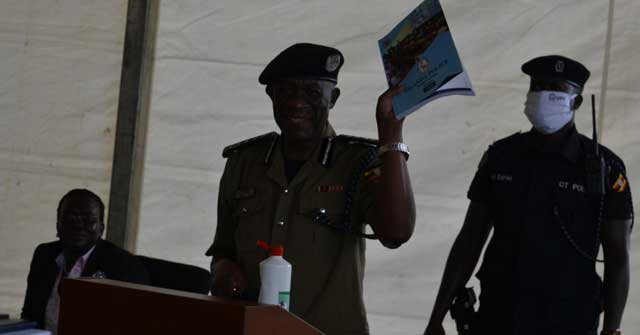
Kampala, Uganda | THE INDEPENDENT | Records at the Criminal Investigations Directorate –CID have revealed that only 34% of the 215,224 recorded crimes in 2019 were taken courts of law.
CID headed by Assistant Inspector General of Police –AIGP Grace Akullo, submitted only 74,810 case files to court. This translates to 34.7 percent meaning the biggest number of cases was left pending investigations.
This was the lowest number of cases taken to court in the last three years. CID registered 238,746 cases in 2018 but only took 73,035 cases files to courts of justice translating into 44 percent.
Akullo explains that her team submitted few cases to courts because of delayed expert reports such as forensic audit and handwriting expert report in crimes like corruption, cyber, fraud and forgeries.
CID working alongside State House Anti-Corruption Unit recorded 64 cases of corruption which was a 50 percent increase compared to 32 graft offences registered in 2018. However, only six cases were taken to court.
Some of the corruption crimes registered by CID and the unit include abuse of office at Post Bank Uganda, obtaining money by false pretence involving the Middle East Consultants, For Youth project in Western Uganda at NAADS, Gaming and Lotteries in a case of alleged abuse of office, Embezzlement.
Akullo further explains that some cases such as murder and sexual offences delay because experts do not deliver DNA analysis reports in time. Some offences particularly gun violence delayed because they require ballistic report and fingerprint examination.
Nicholas Opio, a human rights lawyer, attributes the low numbers of cases taken to court to lack of expertise in investigating complex cases but also the insufficient number of specialists such as pathologist, surgeons and forensic analysts.
Other factors include parties agreeing to settle matters before cases proceeded to court, cases where culprits decided to compensate victims and delayed reporting caused by loss of evidence.
CID still performed poorly in securing convictions as 11,472 out of 74,810 cases submitted to courts were dismissed on grounds of lacking evidence. Only 41.9 percent of the few cases filed submitted to court secured convictions.
Akullo said low numbers on convictions were also as a result of accused persons jumping bail, death of an accused person, death of key witnesses before the case is concluded and key expert evidence not tendered due to delay.
Other reasons for few convictions as cited by CID boss include key witnesses frustrated because of numerous adjournments and refusing to attend court hence dismissal by court on the request of the prosecution, few judicial officers in upcountry stations where they rotate from one district to another and deliberate move to frustrate cases by some Defense lawyers.
*******
URN
 The Independent Uganda: You get the Truth we Pay the Price
The Independent Uganda: You get the Truth we Pay the Price



